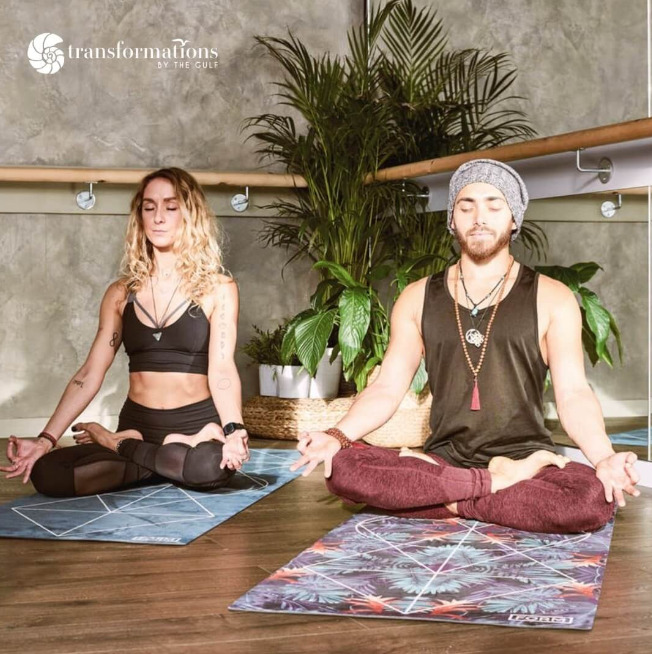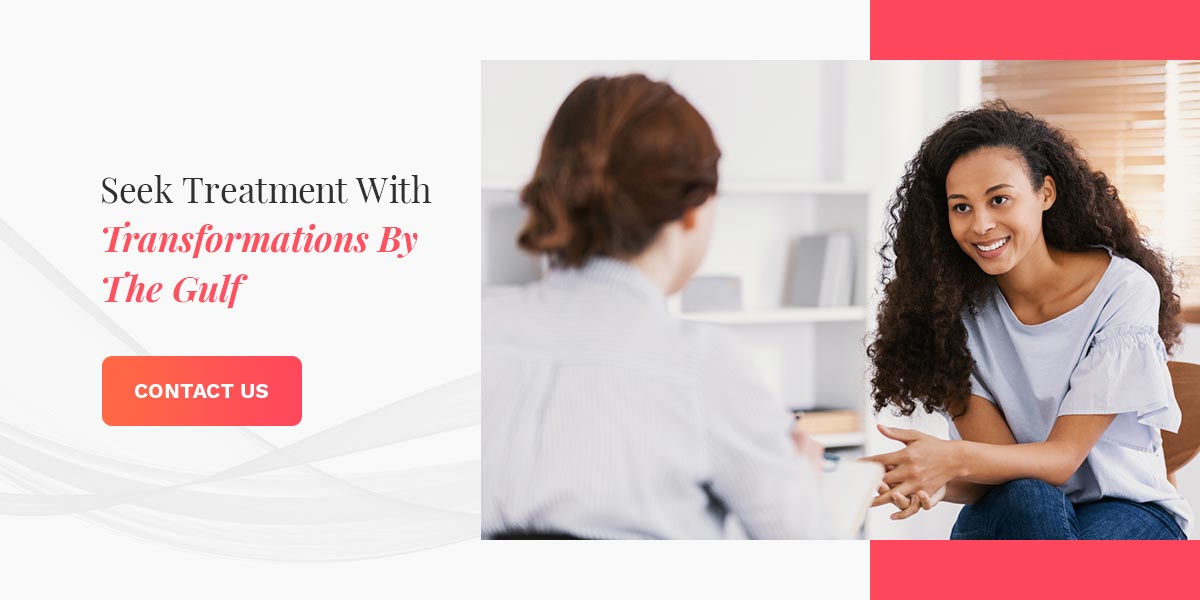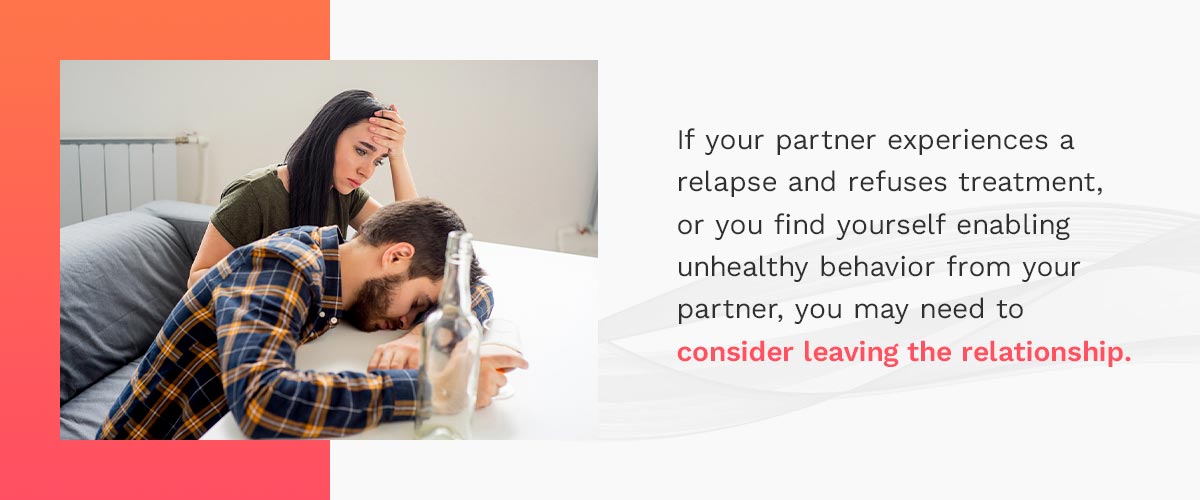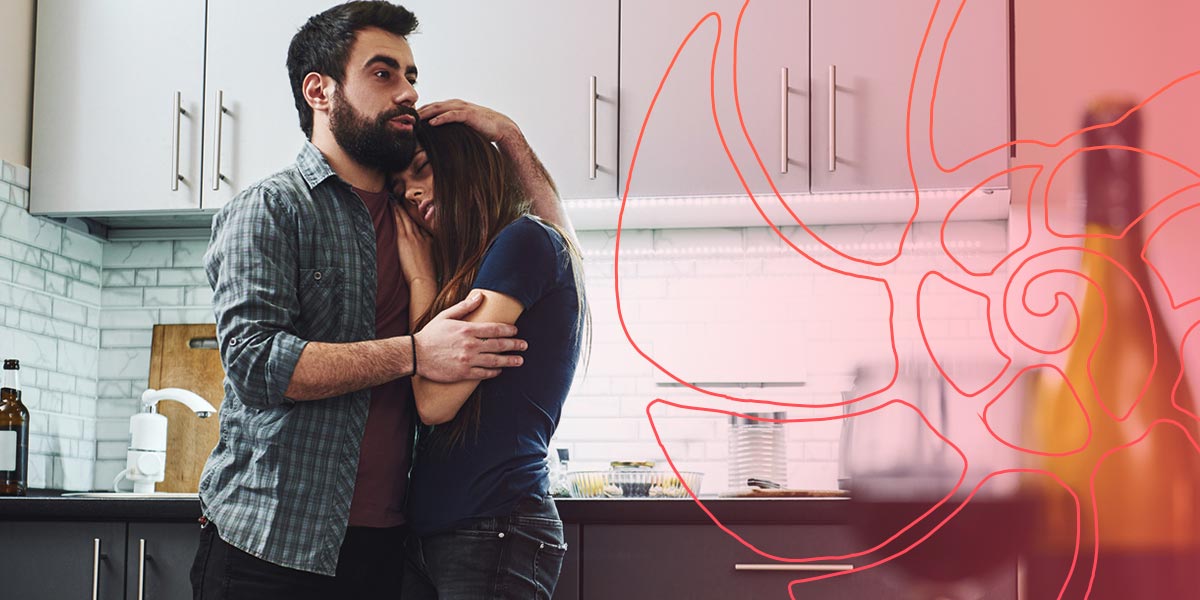Cell Phones at Rehab
Cell Phones in Rehab
Most rehabs do not allow cellphones, computers, tablets or any electronic device other than a mp3 player. Transformations by the Gulf Treatment Center does however allow cell phones. Most rehabs will limit contact to 10-20 minutes total a week. While is approach can be affected in some cases, we find that sheltering you from the outside world is counterintuitive. When you leave treatment if you have not developed coping skills and practiced them the odds of a relapse are significantly higher. With that being said we allow cell phones during treatment but not during therapy hours.
Laptops at Rehab
Every rehab center sets its own policy on cellphones and electronic devices, so be sure to call ahead for a list of approved and prohibited items. We do also allow laptops in rehab because we do feel that during your own time of relaxation you should be able to completely unwind, and we understand there are a lot of resources on the web.
Electronics at rehab
Electronics are another hot button topic for being allowed in rehabs. Transformations allows electronics if you would like to bring them like laptops, tablets, game consoles, mp3 players, and more as long as they don't affect your ability to go to therapy and scheduled recovery meetings. The primary focus on treatment is getting better and recovering.
Cell Phone Use in Rehab
Because going to rehab and receiving treatment is a critical time that will require focus and perseverance, a call home or to a loved one may be able to help someone through rehab. Despite the seemingly positive influence of being in touch with a loved one, it may also become a distraction from the treatment program. The impact, either positive or negative, will of course depend on the individual.
Cell Phone Friendly Rehab
People find themselves asking themself do rehabs in Florida allow cellphones. Are there any rehabs that allow cellphones in Florida? Each rehab facility sets their own rules for electronics and cell phone use so call ahead to confirm the rules. Explore our rehab facilities and amenities further below. Good News Transformations by the Gulf allow cell phones in rehab.
If you or someone you know would like to know more about Transformations by the Gulf Substance Abuse Treatment Center Give us a Call 24/7 (727)498-6498
The success of a person’s recovery depends on the level of personalized treatment provided. It is important to find an addiction treatment program that works. When we say our treatment is individualized, we mean that we craft a program that is tailored to address the client’s unique physical, mental and emotional needs.
In the client’s first 24 hours with us, we’ll evaluate their current state and work to understand what challenges they need to overcome. They’ll also have an initial session with our doctor and meet with one of our licensed mental health professionals.
After the initial evaluations, we’ll design a treatment plan with the sole mission of helping the client overcome and heal from addiction. Their program will focus on things such as:
- Addressing and Identifying root causes of addiction.
- Creating a support system.
- Developing healthy stress management techniques.
- Eliminating Substance use.
- Learning how to communicate emotions effectively.
- Maintaining a healthier lifestyle.
- Repairing damaged relationships.
Our Facility is near the beach and offers a comfortable setting for substance abuse treatment and recovery.
IOP in Saint Petersburg, FL
IOP in Saint Petersburg, FL or Intensive Outpatient Program in St Pete Beach, Florida
Our Intensive Outpatient Program in Florida offers a safe environment for substance abuse treatment. Clients spend the duration of their addiction treatment program in a safe environment as they bridge that gap between Treatment and returning to normal everyday life.
What is Intensive Outpatient Treatment in Florida?
An intensive outpatient program offers the same level of treatment as a residential program without the need to stay at the treatment facility. These clients can go to their job or handle other responsibilities before and after participating in treatment. Since intensive outpatient programs use similar levels of care as residential programs, they’re very effective at treating addiction. You can find relief from your addiction without taking a break from what matters in your life.
A combination of medically supported treatments and various types of therapy make up the approach most likely to result in the outcome and long-term maintenance of recovery. The components of these treatments as used in an intensive outpatient treatment setting are outlined below to help individuals who are seeking help with their addictions, or their loved ones, to find the residential treatment program most likely to support them in their journey.
What Should I expect at Transformations by the Gulf Intensive Outpatient Program?
The success of a person’s recovery depends on the level of personalized treatment provided. It is important to find an addiction treatment program that works. When we say our treatment is individualized, we mean that we craft a program tailored to address the client’s unique physical, mental and emotional needs.
We will design a treatment plan with the sole mission of helping the client overcome and heal from addiction. Their program will focus on things such as:
Addressing and Identifying root causes of addiction.
Creating a support system.
Developing healthy stress management techniques.
Eliminating Substance use.
Learning how to communicate emotions effectively.
Maintaining a healthier lifestyle.
Repairing damaged relationships.
Our Program is based on individual treatment needs and typically ranges from 8-16 weeks.
What is a Typical Day of Treatment?
A typical day of treatment will look a little different for each person and the severity of the addiction. During an intensive outpatient program, you typically spend a few days each week attending therapy, often toward the end of the day. You’ll meet with your provider or a group to participate in different therapies after you finish your workday or handle your outside responsibilities.
An intensive outpatient drug and alcohol treatment program may have more of a time commitment than other types of addiction treatment. These intensive programs are for people who need serious intervention but have other responsibilities to take care of, making them unable to stay at a rehab facility for an inpatient program.
As you meet your goals, the time you need to commit to your outpatient program may decrease as you work through underlying conditions or triggers and readjust to daily life.
Why is Transformations by the Gulf the Right Choice?
We are aware that everyone’s experience with addiction is a unique one, and our program is designed around gender-specific, psychological, biological, social and familial needs. Recovery help at Transformations by the Gulf’s Substance Abuse and Wellness Center can be the beginning of a beautifully productive, exciting sober life! Ready for the next step involving Intensive Outpatient Treatment?
If you’re ready, Start the Admissions Process.
For additional resources: Samhsa Hotline
- Accredited by The Joint Commission (JCAHO)
- Gender-specific with mixed gender interaction
- 3:1 client-to-counselor ratio for more individualized treatment
- Holistic practices woven into traditional therapies to enrich the experience of recovery in treating the mind, body and soul.
- High standard of compassionate care in a small boutique-style facility
- Family therapy
- Comprehensive continuing care
- Well-appointed gender specific residences
Thinking about entering IOP in Saint Petersburg, FL? If you or someone you know would like to know more about Transformations by the Gulf Substance Abuse Treatment Center Give us a Call 24/7 (727)498-6498
The success of a person’s recovery depends on the level of personalized treatment provided. IOP in Saint Petersburg, FL is available even if you don’t live in Florida. It is important to find an addiction treatment program that works. When we say our treatment is individualized, we mean that we craft a program that is tailored to address the client’s unique physical, mental and emotional needs.
In the client’s first 24 hours with us, we’ll evaluate their current state and work to understand what challenges they need to overcome. They’ll also have an initial session with our doctor and meet with one of our licensed mental health professionals.
After the initial evaluations, we’ll design a treatment plan with the sole mission of helping the client overcome and heal from addiction. Their program will focus on things such as:
- Addressing and Identifying root causes of addiction.
- Creating a support system.
- Developing healthy stress management techniques.
- Eliminating Substance use.
- Learning how to communicate emotions effectively.
- Maintaining a healthier lifestyle.
- Repairing damaged relationships.
Our Facility is near the beach and offers a comfortable setting for substance abuse treatment and recovery.
What a Day is Like in Our Treatment Facility.
Why Transformations by the Gulf?
What is Holistic Substance Abuse Treatment?
Substance abuse and mental health treatment has evolved in the last few decades. As a result of this evolution, individuals now have more Types of Therapy than ever before. While the abundance of options can be a lot to take in, it means there is now more opportunity to find treatment that better suits you.
Alongside traditional substance abuse treatment methods and evidence-based models, more treatment facilities have started adding holistic treatment options into their program. Holistic treatment focuses on treating the whole person, not just the symptoms of a disease. Understanding holistic treatment and its benefits may help you determine if it’s a better option for your journey of recovery.
DEFINING HOLISTIC TREATMENT AT TRANSFORMATIONS BY THE GULF
Before diving into its benefits, it is best to begin by defining what the term “holistic treatment” means and what a “holistic approach” to treatment is. A holistic approach considers the interplay between a person’s physical, emotional, social, and spiritual needs when seeking treatment. Rather than seeking to alleviate symptoms at a surface level, holistic treatment dives deeper to discover the root causes of an individual's struggles. Everyone’s experience with addiction or mental illness is different, so individualized treatment is a necessity.
Another fundamental factor of holistic treatment is its focus on wellness. Those in recovery are often told that treatment requires them to make life changes. To live a life of recovery, individuals must strive for improved health and wellness. Holistic practices help people make healthy life choices and, in the long run, improve well-being in every aspect of life.
TYPES OF HOLISTIC PRACTICES YOU CAN TRY AT TRANSFORMATIONS BY THE GULF
Holistic therapy programs usually feature personalized, non-medical, whole person approaches to recovery. Recovering individuals can practice these approaches through several mindfulness-based practices. Upon leaving treatment, those practices become tools to help those in recovery maintain long-term healing and a healthier lifestyle. Consequently, holistic tools are helpful when integrating back into everyday life post-treatment.
The following practices are simple mindfulness-based holistic practices that anyone can try.
ACUPUNCTURE
Acupuncture is another holistic practice many people try. This holistic healing method involves a trained professional inserting thin needles into certain nerve points in a patient's body. The acupuncturist may then press on or move the needles in certain ways with their hands or small electrical devices. Doing so promotes blood flow and electrical stimulation in the body to activate the body's natural healing processes.
These are just a few holistic approaches to try. Some practices will be more effective than others for certain people. When individuals begin experimenting with different holistic techniques, they will learn what works best for them, their body, and their situation. One should consult their doctor or a mental health professional to determine what practices may best benefit their recovery process.
ART THERAPY
Meditation is a form of mindfulness that helps individuals slow down, breathe, and focus on the present moment. In addition to reducing and managing stress, meditation helps people lower their heart rate, normalize their blood pressure, and improve sleep.
BOAT THERAPY
Boat therapy is a form of treatment that uses therapeutic sessions and activities on a boat to help people cope or overcome a wide range of challenges and issues. And though you might just now be hearing about it, boat therapy has been around for years.
CUPPING THERAPY
Cupping therapy is an amazing ancient form of alternative medicine in which a therapist puts special cups on your skin for a few minutes to create a suction. Patients get it for many reasons, including to help with blood flow, inflammation, pain, relaxation and well-being, and as an alternative type of deep-tissue massage. It dates back to ancient Egyptian, Chinese, and Middle Eastern cultures. One of the oldest medical textbooks in the world, the Ebers Papyrus, describes how the ancient Egyptians used cupping therapy in 1,550 B.C.
MEDITATION
Meditation is a form of mindfulness that helps individuals slow down, breathe, and focus on the present moment. In addition to reducing and managing stress, meditation helps people lower their heart rate, normalize their blood pressure, and improve sleep.
YOGA
Yoga helps individuals struggling with addiction and/or mental illness by reducing withdrawal symptoms and cravings and offering a healthy outlet to cope with stress. Yoga can encourage people to increase strength and self-awareness, develop healthy exercise and eating habits, and even achieve emotional healing through intentional movement and breath.
If you or someone you know would like to know more about Transformations by the Gulf Substance Abuse Treatment Center Give us a Call 24/7 (727)498-6498
The success of a person’s recovery depends on the level of personalized treatment provided. It is important to find an addiction treatment program that works. When we say our treatment is individualized, we mean that we craft a program that is tailored to address the client’s unique physical, mental and emotional needs.
In the client’s first 24 hours with us, we’ll evaluate their current state and work to understand what challenges they need to overcome. They’ll also have an initial session with our doctor and meet with one of our licensed mental health professionals.
After the initial evaluations, we’ll design a treatment plan with the sole mission of helping the client overcome and heal from addiction. Their program will focus on things such as:
- Addressing and Identifying root causes of addiction.
- Creating a support system.
- Developing healthy stress management techniques.
- Eliminating Substance use.
- Learning how to communicate emotions effectively.
- Maintaining a healthier lifestyle.
- Repairing damaged relationships.
Our Facility is near the beach and offers a comfortable setting for substance abuse treatment and recovery.
What a Day is Like in Our Treatment Facility.
Why Transformations by the Gulf?
Benefits of Yoga in Addiction Treatment
Benefits of Yoga in Addiction Treatment
Benefits of Yoga in Addiction Treatment is amazing. According to the Surgeon General, 1-in-7 people in the United States. will face substance abuse and addictions. With almost 21 million Americans dealing with addiction, it's a dangerous problem. However, the right recovery center can help.
Using yoga can help correct addictive behaviors. As a method of holistic treatment, yoga helps individuals through the recovery process.
Some recovery centers include yoga as a method of therapy to help people develop and practice coping skills as a way to manage stress. Yoga also helps to balance both the mind and body which reduces addictive behaviors.
The evidence found here might surprise you. Keep reading to learn all about the many benefits to using yoga for addiction recovery.
Yoga Reduces Stress in Recovery
One of the many benefits of yoga is a reduction in levels of stress. Learning mindfulness and even practicing some breathing techniques helps to minimize stress.
In active addiction, you use drugs or alcohol as coping skills during difficult times. Transformations teach Yoga to clients so they can learn these coping skills and practice them throughout the recovery process. One of the benefits of our substance abuse treatment program is that we don't just highlight coping skills we teach you how to incorporate them in your everyday life so when you do feel triggered you can use a coping skill to get you through the difficult time.
Stress tends to trigger addictive behaviors primarily because you are so used to use drugs or alcohol as a way to cope with stress, yoga techniques can help break that vicious cycle of addiction. By winning out over temptation, recovery patients feel better about themselves.
As an added benefit, yoga boosts your mood and improves your willpower which also helps lower stress.
Yoga Helps Control Addiction and Cravings
Addiction alters the brain, impacting both brain structure and function. Because of this, overcoming addiction isn’t as simple as saying no.
Drugs, alcohol, and other addictions hijack the brain. They fill the nucleus accumbent with an overabundance of dopamine.
Dopamine is a neurotransmitter that leads to feelings of pleasure as part of a reward system. Addiction creates an overabundance of pleasure that often leads to drug misuse, including overdoses.
But one of the benefits of recovery yoga is that it returns the brain’s dopamine levels back to normal. This helps to suppress unhealthy cravings tied to that rush of dopamine in the brain.
Yoga Increases Self Awareness
Practicing yoga on a regular basis allows patients to become attuned to their own bodies. They can recognize the warning signs of addictive behavior before it happens.
Noticing and acknowledging cravings as they happen is critical to keeping them in check. Instead of ignoring the signs, individuals learn to listen and understand their bodies in a non-judgmental way.
Yoga Reduces Anxiety with GABA
Another benefit to yoga is a healthy increase in GABA or Gamma-aminobutyric acid. GABA is a neurotransmitter that reduces anxiety and stress. Both stress and anxiety are common in patients suffering from drug withdrawals.
When someone experiences stress or anxiety, their heart rate, and blood pressure rise. Stress hormones like cortisol and adrenaline also rise in response to that feeling.
Regular yoga may enhance and enlarge certain areas of the brain responsible for stress reduction, such as the hippocampus.
Yoga Allows Patients to Regain Control
Many people that struggle with addiction feel they have no control over their lives. They may feel like they’re caught in a downward spiral and are unable to pull themselves back up.
Because of the impact of addiction on the brain itself, it can be hard to feel like you’re in control of your own body.
Yoga teaches people discipline. Instead of reacting emotionally, people learn to evaluate their responses and control their temper.
People that practice yoga treatment for recovery often find it easier to take responsibility for their own choices. This helps to reestablish a sense of control over the body and mind. It feels like a win in the battle against addiction.
Yoga Creates Can Aide the Creation of a Spiritual Awakening
Yoga is an ancient practice that stimulates your spiritual senses. You don’t have to be religious or understand spirituality to practice yoga, either.
Yoga is far more than a physical exercise because a large part of this practice is mental. Individuals learn to view themselves in a new light, evaluating the way they think and act and how that impacts the world around them.
By practicing yoga and meditation, people learn to observe their environment. They understand there are factors outside their control.
You cannot stop the sounds of a barking dog or fix an angry boss, for example. Giving up control and simply observing has a cathartic effect on individuals dealing with addictive behaviors.
Yoga Creates a Sense of Inner Peace
Regular relaxation and meditation techniques promote a sense of calm and inner peace. People who practice yoga often find themselves feeling stronger emotionally.
Yoga allows people to focus on mindfulness rather than temptations, which aids in impulse control. This inner strength helps patients regain a sense of confidence.
Yoga Can Prevent Relapse
Relapse is so common after recovery that roughly 90 percent of people have a slip before, they defeat addiction. But patients can prevent the chances of relapse after recovery by recognizing the signs and practicing yoga.
Those that practice yoga for addiction become attuned to their body. They recognize the warning signs of relapse before it happens.
Yoga also prevents many of the mindsets and behaviors associated with relapses such as loss of judgment and control.
Practicing relaxation techniques and exercises like yoga help to combat negative thoughts. It encourages individuals to examine and accept their feelings instead of ignoring them.
Practicing Yoga for Addiction Recovery
Using yoga for addiction recovery is a holistic method of treatment that helps individuals overcome addictive behaviors and cravings. Along with other methods of treatment, yoga helps people regain control and balance of their mind and body.
The road to recovery is long and filled with many obstacles, but practicing yoga is one way to prevent a relapse. Plus, yoga is a life-long skill that people struggling with addiction can turn to at any time.
Want to learn more about our yoga therapy or need help dealing with addiction? Contact us to learn more about our treatment services and get help today.
If you or someone you know would like to know more about Transformations by the Gulf Substance Abuse Treatment Center Give us a Call 24/7 (727)498-6498
The success of a person’s recovery depends on the level of personalized treatment provided. It is important to find an addiction treatment program that works. When we say our treatment is individualized, we mean that we craft a program that is tailored to address the client’s unique physical, mental and emotional needs.
In the client’s first 24 hours with us, we’ll evaluate their current state and work to understand what challenges they need to overcome. They’ll also have an initial session with our doctor and meet with one of our licensed mental health professionals.
After the initial evaluations, we’ll design a treatment plan with the sole mission of helping the client overcome and heal from addiction. Their program will focus on things such as:
- Addressing and Identifying root causes of addiction.
- Creating a support system.
- Developing healthy stress management techniques.
- Eliminating Substance use.
- Learning how to communicate emotions effectively.
- Maintaining a healthier lifestyle.
- Repairing damaged relationships.
Our Facility is near the beach and offers a comfortable setting for substance abuse treatment and recovery.
What a Day is Like in Our Treatment Facility.
Why Transformations by the Gulf?
Addiction Treatment Programs Treasure Island
Addiction Treatment Programs Treasure Island
At Transformations by the Gulf Recovery Center, our programs focus on treating the whole person, not just the addiction. Our clients become part of our extended Transformations family or "Transformers". Our professional staff ensures that your long-term success in recovery is our priority, so reach out to us today to learn more about our addiction treatment center in Treasure Island, Florida, by calling 727-498-6498
A Comprehensive Approach to Holistic Recovery in Treasure Island
The effectiveness of an individual's recovery hinges on the quality of customized treatment they receive. It is crucial to locate an alcohol addiction treatment program that is effective. Our approach to treatment is personalized, meaning we design a program specifically to meet the client's distinct physical, mental, and emotional requirements. We integrate conventional, science-backed therapies with a holistic method that concentrates on the mind, body, and spirit. Located just a short distance from the stunning Gulf of Mexico, some of our days begin on the beach with either a morning meditation or a tranquil walk.
The rest of the day could include any number of holistic therapies, such as:
- Boat Therapy
- Group therapy
- Trauma therapy
- Dual diagnosis groups
- Expressive arts therapy
- Tai Chi
- Moral Resonation Therapy
- Activities on the beach
- Relapse Prevention Planning
- Acupuncture
- Cupping
- Yoga
- Nutritional therapy
- Dialectical Behavior Therapy
Thirty, Sixty, and Ninety-Day Rehab Programs in Treasure Island
Not everyone will complete their treatment plan in just thirty days. In fact, the long-term treatment outcomes and success rates tend to be higher when clients complete ninety days at a rehab program. Some addictions and dual diagnosis disorders require additional time to recover from. That’s why we offer unique thirty, sixty, and ninety-day holistic addiction treatment programs that are personalized to your specific needs. We will work with you to determine the best program length for your needs.
Trauma-Informed Addiction Treatment in Treasure Island
Trauma-informed addiction treatment is an evidence-based approach that focuses on the impact of trauma and how it relates to substance use disorders. We understand that trauma can be a major factor in the development of substance abuse and mental health issues. The approach emphasizes the client’s resilience and strength, instead of their weaknesses, in treating individuals with substance abuse and mental health problems. It signifies a significant change in the perspective of treatment providers. Trauma-informed treatment helps clients develop healthy coping skills to manage the symptoms of trauma and its effect on their lives.
Outpatient Treatment in Treasure Island
While an outpatient program isn’t for everyone, so we offer an intensive outpatient program (IOP) for clients local to our Florida drug and alcohol rehab center. We recommend our Treasure Island drug rehab if you have not previously gone through an addiction treatment program.
Individualized Addiction Treatment in Treasure Island
When we say our treatment is individualized, we mean that we craft a program tailored to address the client’s unique physical, mental and emotional needs.

The success of a person’s recovery depends on the level of personalized treatment provided. It is important to find an alcohol addiction treatment program that works. When we say our treatment is individualized, we mean that we craft a program tailored to address the client’s unique physical, mental and emotional needs.
In the client’s first 24 hours with us, we’ll evaluate their current state and work to understand what challenges they need to overcome. They’ll also have an initial session with our doctor and meet with one of our licensed mental health professionals.
After the initial evaluations, we’ll design a treatment plan with the sole mission of helping the client overcome and heal from addiction. Their program will focus on things such as:
- Addressing and Identifying root causes of addiction.
- Creating a support system.
- Learning how to communicate emotions effectively.
- Repairing damaged relationships.
- Maintaining a healthier lifestyle.
- Developing healthy stress management techniques.
- Eliminating Substance use.
Relapse Prevention and Aftercare Services in Treasure Island
Aftercare programs bridge the gap between drug rehab and the “real world.” We make sure that before our client leaves, they are setup to succeed. Our goal is to set our clients up for long-term success in recovery, so at Transformations by the Gulf our aftercare planning services ensure support throughout the journey.
How to Get Started at Transformations by the Gulf
Explore the Addiction Treatment Programs at Transformations by the Gulf
Addiction Treatment Programs Sarasota
At Transformations by the Gulf Recovery Center, our programs focus on treating the whole person, not just the addiction. Our clients become part of our extended Transformations family or "Transformers". Our professional staff ensures that your long-term success in recovery is our priority, so reach out to us today to learn more about our addiction treatment center in Sarasota, Florida, by calling 727-498-6498
A Comprehensive Approach to Holistic Recovery Sarasota
The success of a person’s recovery depends on the level of personalized treatment provided. It is important to find an alcohol addiction treatment program that works. When we say our treatment is individualized, we mean that we craft a program tailored to address the client’s unique physical, mental and emotional needs. We combine traditional, evidence-based treatment with a holistic approach focused on mind, body, and spirit.
Just a few steps away from the beautiful of the Gulf of Mexico, some of our mornings start on the beach with either a morning meditation or a beautiful, serene walk.
The rest of the day could include any number of holistic therapies, such as:
- Group therapy.
- Boat Therapy
- Trauma therapy
- Dual diagnosis groups
- Expressive arts therapy
- Tai Chi
- Yoga
- Acupuncture
- Nutritional therapy
- Dialectical Behavior Therapy
- Moral Resonation Therapy
- Activities on the beach
- Relapse Prevention Planning
Thirty, Sixty, and Ninety-Day Rehab Programs Sarasota
Not everyone will complete their treatment plan in just thirty days. In fact, the long-term treatment outcomes and success rates tend to be higher when clients complete ninety days at a rehab program. Some addictions and dual diagnosis disorders require additional time to recover from. That’s why we offer unique thirty, sixty, and ninety-day holistic addiction treatment programs that are personalized to your specific needs. We will work with you to determine the best program length for your needs.
Outpatient Treatment Sarasota
While an outpatient program isn’t for everyone, so we offer an intensive outpatient program (IOP) for clients local to our Florida drug and alcohol rehab center. We recommend our Sarasota drug rehab if you have not previously gone through an addiction treatment program.
Trauma-Informed Addiction Treatment Sarasota
Trauma-informed addiction treatment is an evidence-based approach that focuses on the impact of trauma and how it relates to substance use disorders. We understand that trauma can be a major factor in the development of substance abuse and mental health issues. The approach emphasizes the client’s resilience and strength, instead of their weaknesses, in treating individuals with substance abuse and mental health problems. It signifies a significant change in the perspective of treatment providers. Trauma-informed treatment helps clients develop healthy coping skills to manage the symptoms of trauma and its effect on their lives.
Individualized Addiction Treatment Sarasota
When we say our treatment is individualized, we mean that we craft a program tailored to address the client’s unique physical, mental and emotional needs.

The success of a person’s recovery depends on the level of personalized treatment provided. It is important to find an alcohol addiction treatment program that works. When we say our treatment is individualized, we mean that we craft a program tailored to address the client’s unique physical, mental and emotional needs.
In the client’s first 24 hours with us, we’ll evaluate their current state and work to understand what challenges they need to overcome. They’ll also have an initial session with our doctor and meet with one of our licensed mental health professionals.
After the initial evaluations, we’ll design a treatment plan with the sole mission of helping the client overcome and heal from addiction. Their program will focus on things such as:
- Developing healthy stress management techniques.
- Eliminating Substance use.
- Addressing and Identifying root causes of addiction.
- Creating a support system.
- Learning how to communicate emotions effectively.
- Maintaining a healthier lifestyle.
- Repairing damaged relationships.
Relapse Prevention and Aftercare Services Sarasota
Aftercare programs bridge the gap between drug rehab and the “real world.” We make sure that before our client leaves, they are setup to succeed. Our goal is to set our clients up for long-term success in recovery, so at Transformations by the Gulf our aftercare planning services ensure support throughout the journey.
How to Get Started at Transformations by the Gulf
Explore the Addiction Treatment Programs at Transformations by the Gulf
The Benefits of Going to Rehab in Florida
Why rehab in Florida?
It can become overwhelming trying to find rehab programs that meet all your needs. Here in Florida, choosing the perfect rehab center for you can be easy because of its benefits. From the warm weather, beaches, trained professionals, and growing opportunities, picking a rehab in Florida doesn't have to be complicated. Receiving treatment through an addiction recovery program here will leave you feeling energized and ready to reach the next part of your journey of recovery.
Outdoor activity all year round.
Various treatment methods are used to help you with substance abuse and mental health issues. Engaging in exercise and physical movement increases the chances of having long-term recovery. Who wouldn’t want to be active, receive its benefits, all while enjoying good weather outside? Having all four seasons can make outdoor activities less appealing and more difficult to do. Here in Florida, you can be active outside all year round.
Being active and getting regular exercise can help you restore endorphins in a healthy way without the use of drugs. Endorphins are often lacking after alcohol and drug abuse and need to be replenished. Exercise can help you improve your confidence, emotional stability, and help support the overall functioning of the body. Physical body functions become stronger, such as blood circulation and heart rate.
Many treatment facilities in Florida offer activities such as yoga, outdoor walks, and meditation to help you treat addiction. Other treatment options include therapy such as group or one-on-one therapy and pharmacological care. These activities and therapies help you work on yourself to restore mental and physical behaviors. It is especially nice when they can be done outdoors!
Warm weather helps improve recovery.
Warm weather ultimately boosts recovery in countless ways. We now know that warm weather can encourage people to be active and engage in physical activity. It is commonly mistaken that only the people who already enjoy exercise, will like having the advantage of warm weather. Even if you find yourself not to be an active person, you can still benefit from warm weather and sunshine.
The power of sunshine can strike in many ways, like a boost in your mood. Vitamin D plays a vital role in reducing occurring disorders such as anxiety and depression. Unfortunately, both anxiety and depression are issues that you can face during your journey to recovery. That is why warm weather and sunshine is so important. Even a small amount of sunshine can help overcome these problems.
Vitamin D is responsible for bone growth as well as stabilizing moods. According to the World Health Organization (WHO), getting about 5 to 15 minutes of sunlight on your arms, hands, and face two or three times a week is enough to reap the vitamin D-boosting benefits of the sun. Also, various studies have also proven that sunshine provides higher levels of serotonin in the brain. Serotonin is a chemical in the brain that controls stress, anxiety, and sleep, for example. High levels of serotonin can make your recovery process more efficient and have a positive impact. Altogether, sunshine and beaches are just more benefits of choosing a rehab in Florida.
Your family and friends will find choosing a rehab in Florida more attractive since it is the warm sunshine state. Most people enjoy warm weather, beaches, and theme parks. These factors can help inspire recovery and make it fun for along the way.
In order to achieve recovery, it is important to be open to changing and growing in a positive way. Receiving increased levels of serotonin can help you significantly along the way. Choosing a treatment center in the best environment and where you will feel comfortable is crucial in order to get well. But don’t worry, because this can all be accomplished by undergoing treatment at rehab in Florida.
An entertaining environment
Getting help is more enjoyable in the sunshine state being near the happiest place on earth. Florida is home to many beautiful beaches, one of the largest, most iconic theme parks in the country. Just up the road from Disneyworld is another iconic theme park, Universal Studios and Islands of Adventure, which features the famous Wizarding World of Harry Potter. It is important to remember to reward yourself when you are making progress. Celebrating your progress through the recovery process can be a lot more fun with fun activities and great entertainment.
Transformations by the Gulf is located in St. Pete Beach, Florida, nested right on the Gulf Coast. It's amazing to be near such beautiful places when you are recovering to begin your new life to sobriety.
A whole lot of opportunities
Some might know Florida as the recovery capital of the world. This is because individuals typically want to seek positive change and know the many benefits Florida can provide. After finishing a recovery treatment program, many people remain in touch and continue to be connected through wellness and support groups.
Florida continues to be a growing state in the United States. Economic opportunities and careers proceed to grow year after year. The tourism industry in the sunshine state can help you find a job after treatment much easier compared to other states. This is why many people choose to enter a rehab facility in Florida and then continue to live their new life thereafter.
Considering the opportunities Florida offers after rehab is important. The growing economic and career possibilities can help inspire you to move forward in a positive direction. If you or a loved one is interested in entering a rehab in Florida, contact Transformations by the Gulf. We are here to help you make the first steps to take back control of your life and start your journey to recovery.
If you or someone you know would like to know more about Transformations by the Gulf Substance Abuse Treatment Center Give us a Call 24/7 (727)498-6498
The success of a person’s recovery depends on the level of personalized treatment provided. It is important to find an addiction treatment program that works. When we say our treatment is individualized, we mean that we craft a program that is tailored to address the client’s unique physical, mental and emotional needs.
In the client’s first 24 hours with us, we’ll evaluate their current state and work to understand what challenges they need to overcome. They’ll also have an initial session with our doctor and meet with one of our licensed mental health professionals.
After the initial evaluations, we’ll design a treatment plan with the sole mission of helping the client overcome and heal from addiction. Their program will focus on things such as:
- Addressing and Identifying root causes of addiction.
- Creating a support system.
- Developing healthy stress management techniques.
- Eliminating Substance use.
- Learning how to communicate emotions effectively.
- Maintaining a healthier lifestyle.
- Repairing damaged relationships.
Our Facility is near the beach and offers a comfortable setting for substance abuse treatment and recovery.
What a Day is Like in Our Treatment Facility.
Why Transformations by the Gulf?
Florida Alcohol and Drug Relapse Prevention
Florida Alcohol and Drug Relapse Prevention
How Do I Prevent Relapse or Develop a Relapse Prevention Plan?
- Transformations by the Gulf has created a Recovery and Wellness Program to help address concerns that come with the transition between leaving inpatient treatment and entering the next phase in the recovery process.
- Patients in our outpatient program are also able to continue seeing the same doctors and psychiatric providers once they return home.
- We believe that taking this approach will lead to increased long-term sobriety rates and will allow us to monitor its impact on our patients and their road to recovery.
Transformations by the Gulf Florida Substance Abuse Treatment Approach to Relapse
At Transformations by the Gulf, we recognize that relapse rates are abysmal and something that we want to work to change. Florida Alcohol and Drug Relapse Prevention Plans are needed. The standard relapse prevention groups and work has not been successful for the majority of individuals struggling with addiction. We have made many changes to our program experience in helping individuals identify behaviors that can lead to relapse. After we have identified the behaviors, we help clients not only develop coping skills but actually practice those skills. May treatments fail to help patients practice implementing coping skills, so when a relapse is about to happen individuals do not know which coping skills will help and thus often times can fail. This is one of the leading causes to relapse post treatment.
Florida Alcohol and Drug Relapse Prevention is important. As part of our program, we have patients complete relapse prevention plans related to substance addiction while also having them identify areas where they might fall into other addictive patterns once they return home. Many individuals with addictive personalities achieve initial sobriety from drugs and alcohol but begin exercising compulsively, restricting food, overeating, working 80 hours per week, or engaging in compulsive sexual behaviors. Engaging in any of these behaviors often leads to relapse on substances while also causing issues in their personal lives, just like their substance use issues did.
We also recognize that many patients successfully complete inpatient treatment but then do not complete recommended intensive outpatient treatment, do not attend medical follow-up appointments, and do not remain medication compliant. All of these behaviors often lead to relapse, and patients are additionally losing the structure, accountability, and medical care that assisted them in succeeding in inpatient care. When discussing reasons why alumni did not engage in follow-up care, we learned that there were common reasons. These included not wanting to tell their story to a new doctor or therapist and difficulty finding doctors to refill their medications. Therefore, Transformations created a Recovery and Wellness Program to help address these concerns, so they are not a barrier to sobriety.
Patients who attend the intensive outpatient program will live off site whether it's at community housing provided by Transformations or it's at home. While in Transformations by the Gulf's IOP program they will meet with a therapist once a week still from Transformations. We will then begin helping the client find the right therapist to see once treatment has been completed so they can continue care from home.
Patients in our inpatient settings will also have access to individual or family sessions per week. This allows for greater processing of the issues that contributed to their addiction and increased family involvement. We recognize that if a patient returns home to the same environment without engaging in therapy with their loved ones, they will often relapse. We believe that taking this approach will lead to increased long-term sobriety rates and will allow us the ability to monitor its impact on our patients and their road to recovery.
If you or someone you know would like to know more about Transformations by the Gulf Substance Abuse Treatment Center Give us a Call 24/7 (727)498-6498
The success of a person’s recovery depends on the level of personalized treatment provided. It is important to find an addiction treatment program that works. When we say our treatment is individualized, we mean that we craft a program that is tailored to address the client’s unique physical, mental and emotional needs. Florida Alcohol and Drug Relapse Prevention is important.
In the client’s first 24 hours with us, we’ll evaluate their current state and work to understand what challenges they need to overcome. They’ll also have an initial session with our doctor and meet with one of our licensed mental health professionals.
After the initial evaluations, we’ll design a treatment plan with the sole mission of helping the client overcome and heal from addiction. Their program will focus on things such as:
- Addressing and Identifying root causes of addiction.
- Creating a support system.
- Developing healthy stress management techniques.
- Eliminating Substance use.
- Learning how to communicate emotions effectively.
- Maintaining a healthier lifestyle.
- Repairing damaged relationships.
Are you struggling with addiction and want to learn more? Visit Psychology Today or check out or page on addiction treatments.
Our Facility is near the beach and offers a comfortable setting for substance abuse treatment and recovery.
What a Day is Like in Our Treatment Facility.
Why Transformations by the Gulf?
What to Expect When Marrying a Recovering Addict
What to Expect When Getting Married to a Recovering Addict
Marrying a person who is recovering from drug or alcohol use requires some awareness. It doesn't have to be a
marriage deal breaker, but you may want to consider some additional things before starting or ending a
relationship with a former drug addict. There is a stigma attached to the disease of addiction, but many people
recover and find ways to live a sober life.
Benefits and Challenges of Marrying a Recovering Drug Addict
A person who works hard toward sobriety may be healthier than individuals who have never experienced addiction.
Recovery requires an individual to become self-aware through therapy and treatment. They are often active in 12-step
programs and closely involved in continuing care.
A person in recovery may attend regular therapy sessions and should understand how to practice healthy coping
strategies to stay sober. A past addiction combined with healthy lifestyle changes can lead to incredible growth if a
person does the work to achieve and maintain sobriety.
Marrying someone who attends therapy and works on their mental and physical health can lead to a very healthy
relationship. However, marrying a person recovering from substance use can also present challenges for both people in
the relationship. Remember that relapse is always possible at any stage of recovery, and it is up to the person in
recovery to do the work necessary to prevent relapse.
A person recovering from substance use may experience the following:
- Irritability
- Isolating behaviors
- Substance cravings
- Mental health challenges
- Health complications caused by past drug use
- Disinterest in new experiences, hobbies or their partner
- Vulnerability to other addictions such as sex or gambling addiction
How to Help Your Significant Other Through Addiction Recovery
You could someday find yourself wondering how to support a significant other through addiction recovery. You may begin
marrying an addict, start a relationship with someone who relapses later or discover your spouse becoming addicted to
drugs years into a marriage.
In any of these situations, you must remember that your mental and physical health are critical. You cannot heal,
"fix" or force your partner through recovery. However, if it is safe to do so, you can offer support as they do the
recovery work they need to do. You can help your partner through addiction recovery in the following ways:
Learn About the Signs of Addiction and Avoid Enabling
Eliminating or reducing the consequences of another person's unwanted or unhealthy behaviors is enabling. Even if you
enable your partner's behavior with good intentions, it can significantly harm them, yourself and the relationship. Eliminating repercussions encourages a person to continue unhealthy behaviors.
If your significant other manipulates you or others, lies to you or asks you to lie for them because they are using a
substance, it's important to avoid enabling them. Let them experience the consequences of their actions, and let them
know that you do not accept their behavior. Learn the signs of addiction so you recognize when they occur, and encourage your partner to seek help when they exhibit these signs.
Set Boundaries in the Relationship
Boundaries matter in any relationship, but they are essential when you are in a relationship involving past drug
addiction. Let your significant other know what your boundaries and expectations are, and plan what you will do if
they cross your boundaries. You may need to say "no" at times, and you may need to walk away if their actions affect
your mental or physical health.
Remember That You Are Not Responsible for Their Actions
Only your significant other is responsible for their actions, and you cannot control their behaviors. Maintain a
healthy mindset by remembering that you are not responsible for your loved one. While you can show your support for
them, you must also realize that they are responsible for themselves.
Seek counseling or therapy if you feel stressed or overwhelmed trying to control or "fix" your partner. Remember that
it is not your fault if they relapse or struggle in their recovery.
Attend Couples Counseling
Attending couples counseling is an excellent way to maintain a healthy relationship. A therapist can help you and your
partner set healthy boundaries, develop healthy communication skills and recognize any issues you need to address.
Attending therapy separately and alone can help you care for your mental health, and it can help your partner care for
their mental health as well.
Seek Help if Needed
If your loved one relapses, it can affect your mental health. Seek help from a professional such as a therapist if
your significant other's addiction affects you in the following ways:
- Sleeplessness
- Poor concentration
- Constantly worrying about your significant other
- Weight changes due to overeating or not eating enough
- Feelings of sadness, depression, hopelessness, anger or rage
- Inconsistent or poor relationships with your friends and family
 When to Consider Leaving a Partner
When to Consider Leaving a Partner
Past addiction doesn't have to be an absolute deal breaker. However, some situations can lead to an unhealthy
relationship. If your partner experiences a relapse and refuses treatment, or you find yourself enabling unhealthy
behavior from your partner, you may need to consider leaving the relationship.
Staying Healthy When Marrying Someone Recovering From Addiction
It can be easy to focus on your partner's health and well-being when they are recovering from drug or alcohol
addiction. However, you must take care of yourself and focus on your well-being. Self-care is necessary to help you
stay healthy, cope with stress and prevent negative reactions to future stress.
While you can support your partner in healthy ways, it's also important to practice self-care in the following ways:
- Eat healthily
- Take time to exercise
- Set healthy boundaries
- Rest and get enough sleep each night
- Care for your mental health through therapy, meditation or support groups
- Maintain healthy relationships with friends and family outside your romantic relationship
Relapses: When to Talk About Additional Treatment Options
For you and your significant other to have a healthy relationship, your partner must have a strong relapse prevention
plan. They should be taking healthy steps to abstain from drugs and alcohol. These steps can include a 12-step program, therapy, healthy coping strategies and healthy lifestyle habits. You and your partner can pursue and maintain a healthy relationship if they do the work necessary to recover and maintain sobriety.
Relapse is always possible in recovery, and 40% to 60% of individuals in recovery will experience a relapse. Your partner should have a plan in place in case relapse occurs. To be prepared, they can list potential rehabilitation and treatment programs to contact if they relapse. If your partner uses any amount of a substance during recovery, they must seek treatment as soon as possible.
If you or someone you know would like to know more about Transformations by the Gulf Substance Abuse Treatment Center Give us a Call 24/7 (727)498-6498
The success of a person’s recovery depends on the level of personalized treatment provided. It is important to find an addiction treatment program that works. When we say our treatment is individualized, we mean that we craft a program that is tailored to address the client’s unique physical, mental and emotional needs.
In the client’s first 24 hours with us, we’ll evaluate their current state and work to understand what challenges they need to overcome. They’ll also have an initial session with our doctor and meet with one of our licensed mental health professionals.
After the initial evaluations, we’ll design a treatment plan with the sole mission of helping the client overcome and heal from addiction. Their program will focus on things such as:
- Addressing and Identifying root causes of addiction.
- Creating a support system.
- Developing healthy stress management techniques.
- Eliminating Substance use.
- Learning how to communicate emotions effectively.
- Maintaining a healthier lifestyle.
- Repairing damaged relationships.
Our Facility is near the beach and offers a comfortable setting for substance abuse treatment and recovery.
What a Day is Like in Our Treatment Facility.
Why Transformations by the Gulf?
7 Tips for Helping Someone you're Dating with an Addiction
Here are 7 Tips for Helping Someone you're Dating with an Addiction. The challenge with addiction is that the addict is not the only one impacted by this disease. Family and friends can have difficulty with the addict’s behavior, financial problems, legal problems and the daily struggle of supporting trying to find healthy balance. Sometimes dating an addict can be difficult. Here are seven tips that family and friends can reference to support an addicted family member or friend.
Tip #1: Educate Yourself
Get information about addictions. Understand the addict’s disease process. Find information about how it impacts the family and friends. Knowledge is power and it may help you understand more about yourself and your loved one. There are many resources for finding this information: SAMHSA.gov (Substance Abuse Mental Health Services Administration) has all types of educational and informational resources. The public library and the internet have an enormous amount of information for education, groups, support, treatment, etc.
Tip #2: Get Support
When you have a loved one with an addiction problem, it can create a great deal of difficulty in your life. There are groups that can help you learn how to cope, provide resources and help the addict, including:
- Al-Anon (focused on Alcohol addiction)
- Nar-Anon (focused on drug addiction – prescription and illegal)
Tip #3: Get Counseling
It may be helpful to get some individual counseling to assist yourself. Counseling isn’t just for the alcoholic or addict. The more you are able to manage the better you will be able to help your loved one. There are a variety of resources to find counselors. Your company may have an Employee Assistance Program, or your health insurance may have mental health benefits that you can access. Talk to someone you trust about finding the resources you need and do a search for resources in your area.
Tip #4: Seek Specialty Help
If you need assistance with financial issues or legal issues it may be helpful to talk to attorney providers that are covered. There are organizations that provide services on a sliding scale fee, and you can often find those by calling your local Mental Health Agency or United Way. Local churches may also provide some low or no cost counseling.
Tip #5: Don’t Enable
It is difficult for family members when the disease takes hold. Often, family members have supported the person’s addiction without even fully realizing that was what they were doing. Don’t rescue the addict. Let them experience the consequences of their disease. Many times, people are unable to change until they are forced. Don’t financially support the addict or their addiction. Many family members and friends buy groceries, give financial assistance to pay court fines or attorneys, or pay rent to help someone out, but usually it only prolongs the disease as addicts are able to avoid consequences.
Tip #6: Have Realistic Expectations
Don’t preach or lecture to the addict. They are usually unable to hear what you are saying. Continue to hold them accountable to expectations and offer help to direct them to the treatment they need. Don’t expect addicts to keep promises, they are not able to do so while in the process of their disease. Don’t react with pity or anger. This only keeps you in the process with the addict.
If your loved one is ready to get help, visit our Alcohol and Drug Treatment page to find out more about getting a referral and assessment. You can also contact Legal Aid programs in your area to see if you qualify for those services or they may be able to direct you to someone who can assist you.
If you have insurance and just want to get information about pricing, give us a call 24/7
Tip #7: Take Care of Yourself
Focusing on your own life is the most important thing you can do to assist the addict. If you are stressed out due to their issues, in addition to your own, it creates resentment and strain. It makes it difficult to want to help someone who has created so much difficulty in your life. By taking care of yourself through exercising, getting plenty of sleep, socializing and getting support, you may be better able to help your loved one when they are ready to accept the help.
The most important thing to remember is that you aren’t alone. Many people battle with these issues every day and it is vital to get the resources and support you need.
If you or someone you know would like to know more about Transformations by the Gulf Substance Abuse Treatment Center Give us a Call 24/7 (727)498-6498
The success of a person’s recovery depends on the level of personalized treatment provided. It is important to find an addiction treatment program that works. When we say our treatment is individualized, we mean that we craft a program that is tailored to address the client’s unique physical, mental and emotional needs.
In the client’s first 24 hours with us, we’ll evaluate their current state and work to understand what challenges they need to overcome. They’ll also have an initial session with our doctor and meet with one of our licensed mental health professionals.
After the initial evaluations, we’ll design a treatment plan with the sole mission of helping the client overcome and heal from addiction. Their program will focus on things such as:
- Addressing and Identifying root causes of addiction.
- Creating a support system.
- Developing healthy stress management techniques.
- Eliminating Substance use.
- Learning how to communicate emotions effectively.
- Maintaining a healthier lifestyle.
- Repairing damaged relationships.
Our Facility is near the beach and offers a comfortable setting for substance abuse treatment and recovery.
What a Day is Like in Our Treatment Facility.
Why Transformations by the Gulf?









 When to Consider Leaving a Partner
When to Consider Leaving a Partner